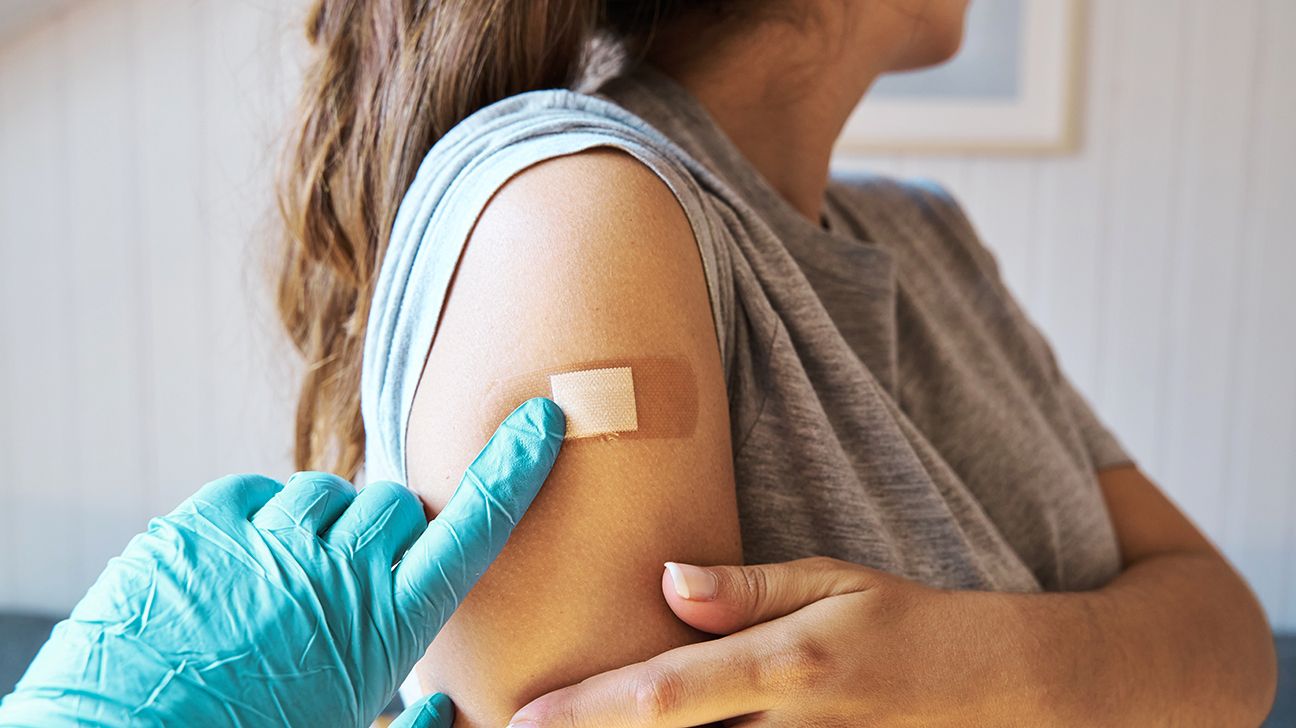
- The FDA approved updated COVID-19 shots for the fall, but federal health officials have changed their recommendations on who should receive them.
- The new vaccines are expected to contain updated formulas to fight the latest strains of the virus and should be available around mid-September.
- Experts are concerned that new policies regarding COVID-19 vaccine eligibility could increase the number of cases, especially among vulnerable populations.
A late-summer COVID-19 surge with the new “Stratus” omicron subvariant has left many Americans wondering whether they’re eligible for updated COVID-19 shots this fall.
Health experts are concerned about the potential for increased spread of COVID-19 and other infectious diseases after some recent decisions by the Trump administration involving vaccines.
The FDA will limit COVID-19 vaccinations to “high risk” younger adults and children with at least one chronic health condition like obesity or asthma. In addition, children under 5 will no longer have access to Pfizer’s COVID-19 vaccine, but will be eligible for shots from Moderna and Novavax.
This could mean millions of Americans will have to prove their case for vaccination, and healthy adults and children who wish to get vaccinated against COVID-19 will no longer be eligible.
According to new clinical guidelines from the American College of Cardiology, people with cardiovascular disease should be made eligible for the new shots. The ACC recommends vaccination against respiratory illnesses, including COVID-19, influenza, and RSV, for people with heart disease.
All U.S. adults 65 and older are still eligible for vaccination against COVID-19.
The policy shifts for COVID-19 shots began in May when the Centers for Disease Control and Prevention (CDC) and the Food and Drug Administration (FDA) announced they were no longer recommending the COVID-19 vaccine to healthy adults under 65, pregnant people, and healthy children.
Then, in early August, Health and Human Services Secretary Robert F. Kennedy Jr. said that his agency would eliminate $500 million in funding for 22 mRNA vaccine development programs.
The following week, Kennedy’s agency announced it was reviving the Task Force on Safer Childhood Vaccines, a move that some experts say could lead to anti-vaccination policies.
These actions recently prompted the American Academy of Pediatrics (AAP) to update its recommendation on COVID vaccines. The AAP urges parents to have their children ages 6 months to 18 years vaccinated against the respiratory disease that caused a worldwide pandemic in 2020.
Experts interviewed by Healthline say these new developments could have serious consequences in the coming months.
“With fewer persons vaccinated, we can anticipate an increase in hospitalizations, intensive care unit admissions, and even deaths during the coming winter season,” said William Schaffner, MD, an infectious disease specialist and a professor of medicine at Vanderbilt University.
“It’s a really scary proposition that vaccines might not be available to everyone,” added Danelle Fisher, MD, a pediatrician at Providence Saint John’s Health Center in Santa Monica, CA. “We may see what havoc COVID can still cause. Fasten your seat belts.”
It’s unclear when the latest batch of COVID-19 vaccines will be available, but experts say mid-September is likely the date.
The new vaccines are expected to contain updated formulas to combat the latest strains of the novel coronavirus.
Steven Jensen, MD, a pediatrician and medical director of General Pediatrics at Miller Children’s & Women’s Hospital in Long Beach, CA, said there should be enough COVID-19 supply to ensure anyone who wants to get vaccinated can do so.
Jensen said that manufacturers have increased production, and most pharmacies, clinics, and doctor offices should have adequate supplies. However, he noted that some rural areas may face shortages.
He noted that the biggest issue is whether people will want to get vaccinated, especially given the changes to the CDC and FDA recommendations.
“The difficulty will not be having enough vaccines available,” Jensen told Healthline. “I believe the main difficulty will be vaccine fatigue, as people will be less motivated to get updated boosters, leading to lower demand. Also, there is significant misinformation and mistrust about the vaccine safety, which can impact the willingness of patients to receive this vaccine.”
There are other complications, too.
Politico reports that pharmacies in 18 states and Washington, D.C., have their authority to vaccinate individuals linked to CDC guidelines.
That could mean pharmacists in those regions may be reluctant to administer vaccines to people unless they are at least 65 years old or have underlying medical conditions.
According to Politico, nearly 90% of COVID-19 vaccine doses during the
There’s also the possibility that healthy people who are providing care to people who are vulnerable to COVID may not be able to get vaccinated.
Jake Scott, MD, an infectious disease specialist and a clinical associate professor of medicine at Stanford University in California, adds that insurance companies may also require people who don’t meet the CDC guidelines to pay for their vaccinations.
“We’re creating a system where your ability to protect yourself and your family depends on your ability to pay,” he told Healthline.
Fisher pointed out that healthy babies, as well as people being treated for cancer and those with underlying medical conditions, will be at risk. That, she said, will affect everybody.
“The most vulnerable will be the ones hit first,” Fisher told Healthline. “I don’t know anybody who doesn’t know somebody in the vulnerable populations.”
Scott noted that an increase in COVID cases will have ripple effects throughout society.
“When vaccination rates drop, viruses don’t just affect the unvaccinated,” he said. “They spread through schools, overwhelm hospitals, and put vulnerable people at risk. We’re setting ourselves up for preventable outbreaks.”
Vaccines created through a process known as messenger ribonucleic acid, or mRNA, have been in development for decades.
They work by introducing the immune system to an antigen found in a pathogen in a unique way. Instead of using a weakened or inactivated form of a pathogen, they teach the body’s cells how to temporarily produce an antigen themselves.
The mRNA type of vaccine was used in COVID-19 vaccines distributed by Pfizer and Moderna. Experts note that mRNA research involves more than vaccines.
“It is important to remember that mRNA technology has the potential beyond just vaccines, including personalized cancer therapy, gene editing, and treatment for genetic disorders,” Jensen said.
“A reduction in funding for mRNA vaccine development can have significant adverse effects on scientific progress in finding new innovative treatments for these varied illnesses and in helping us prepare for future emergent diseases.”
When Kennedy announced the elimination of funding for mRNA research, he said it was because these types of vaccines “fail to protect” against respiratory illness.
Experts disagree with the Health Secretary’s decision.
“This is a half-billion-dollar decision based on fundamentally flawed science,” said Scott. “I actually read through the 181-page document Kennedy cited as justification. Most of the studies in there show harmful effects from COVID infection, which actually supports vaccination, not the opposite.”
Scott added that mRNA vaccines can also be developed much more quickly than traditional inoculations.
“We’re abandoning the one vaccine technology that can be updated in weeks instead of months,” he said. “When the next pandemic hits— and it will — those extra months of development time mean preventable deaths.”
Fisher added that the United States should be the leader in mRNA vaccines, not the one holding up progress.
“We should be leading the charge,” she said. “We don’t know what pathogens are coming.”
The CDC
In addition, the CDC
These statistics have set off alarm bells among experts.
“Higher rates of vaccine exemptions for children have several concerns,” said Jensen. “One is when exemption rates increase, herd immunity weakens, making it easier for the disease to spread.”
Scott is concerned about the
“The geographic clustering is the real danger,” he said. “These aren’t isolated families – they’re concentrated communities where measles or whooping cough can tear through unprotected children. We’ve seen it happen before and we’re setting up for it to happen again.”
“I am concerned that increasingly some parents are seeking exemptions for vaccinations of their children,” added Schaffner.
“We do not want to go back to the ‘bad old days.’ These diseases were much worse than many today believe,” he told Healthline.
COVID-19 symptoms usually resolve without medical intervention. Some ways to reduce discomfort caused by symptoms include:
- rest
- plenty of fluids
- over-the-counter pain relievers and fever reducers
If your symptoms persist, you should see a healthcare professional for treatment. They may prescribe the antiviral therapy Paxlovid.
Experts say there are also ways to reduce your risk of contracting COVID-19, whether you’ve been vaccinated or not.
“Good sleep, good nutrition, exercise regularly,” said Fisher. “These help keep your immune system in good shape. Wash hands or use hand sanitizer frequently. Finally, use masks when in public spaces with a lot of people and definitely during travel to try to avoid viral infections.”
Source link : https://www.healthline.com/health-news/updated-covid-19-vaccine-restrictions-fall-2025
Author :
Publish date : 2025-08-28 09:10:11
Copyright for syndicated content belongs to the linked Source.











